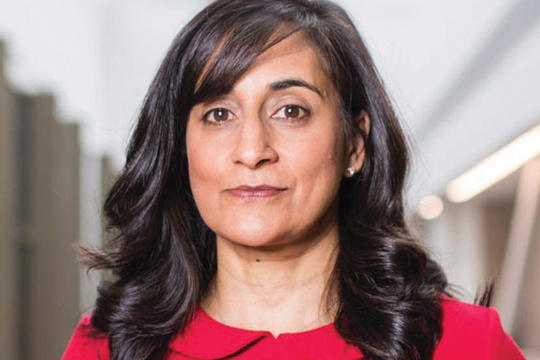
Last December, Defence Minister Anita Anand issued a virtual formal apology on behalf of the federal government to all current and former members of the Canadian Armed Forces affected by sexual assault, harassment or discrimination in the workplace.
On Dec. 13, 2021, Defence Minister Anita Anand publicly apologized on behalf of the federal government to current and past victims of military sexual assault, sexual harassment and discrimination based on sex, gender, gender identity or sexual orientation.
Anand admitted, “the very institution charged with protecting and defending our country has not always protected and defended its own members.”
The apology was part of the 2019 settlement of the $900-million class-action suit against the federal government on behalf of victims. It also included the acceptance of recommendations in reports by two Supreme Court justices on the issue, work on Bill C-77, a declaration of victims’ rights in the military, and the acceptance of the Justice Louise Arbour report, which was to be released May 20.
Also apologizing were Chief of Defence Staff (CDS) Wayne Eyre and then-deputy defence minister Jody Thomas.
It was an act of contrition, but affected veterans Sage spoke with don’t think much has changed, though they like Anand.
Annalise Schamunh was among the survivors Anand’s office reached out to before the apology, and she organized a meeting with the minister days later.
“I really get the sense that she 'gets it',” Schamunh says. “She was just so careful not to centre herself in my experience.”
Maya Eichler, who teaches political and women’s studies at Halifax’s Mount Saint Vincent University, thinks progress is being made, but not quickly enough.
“The key task following the Arbour report will be to build effective external oversight to monitor the military’s progress on implementing these recommendations,” Eichler says.
Harassment victim Carolyn Hughes says “action speaks louder than words.” She’s disappointed that there have been several transgressions since the apology. Among them are privacy breaches of personal information on class-action claimants; the fact that former CDS Gen. Jonathan Vance’s sentence for obstruction of justice was only 80 hours of community service; and the fact that two senior female officers at CFB Halifax are now quitting the military because leadership refused to hold three subordinates to account for mismanaging and attempting to cover up a sexual misconduct case.
Ottawa survivor Louise Siew retired in 2010 as a naval captain, and says the cover-up in the Halifax case shows nothing has changed. She blames the military colleges for creating a culture in which members are taught to have each other’s back at the expense of all else.
Diane Dewar, of Victoria, joined the navy young. She became a reservist at 18, left six years later to raise her family, then returned 11 years later as a reservist, including a seven-year stint at headquarters. She submitted a successful claim in the class-action lawsuit. Dewar is disappointed the prime minister didn't apologize to survivors.
“[He’s] apologized to every group that presented themselves since 2015,” Dewar says. “The minister hasn't been in the department long. She's a very clever woman and very accomplished, but it didn't sit well with me.”
Karen Breeck, who was a Canadian Space Agency and CAF flight surgeon, says the military she loves won’t change until change starts at the top.
Breeck says Canadians need to debate what they want the military to be. Do they want a military mainly for disaster response? Or a 21st-century fighting force in which IT skills and cyber warfare may be needed for winning hearts and minds and killing foes? With those answers, Canada could recruit for a modern military, one that may not look like a CAF composed of 70 per cent white men, as it currently does.

